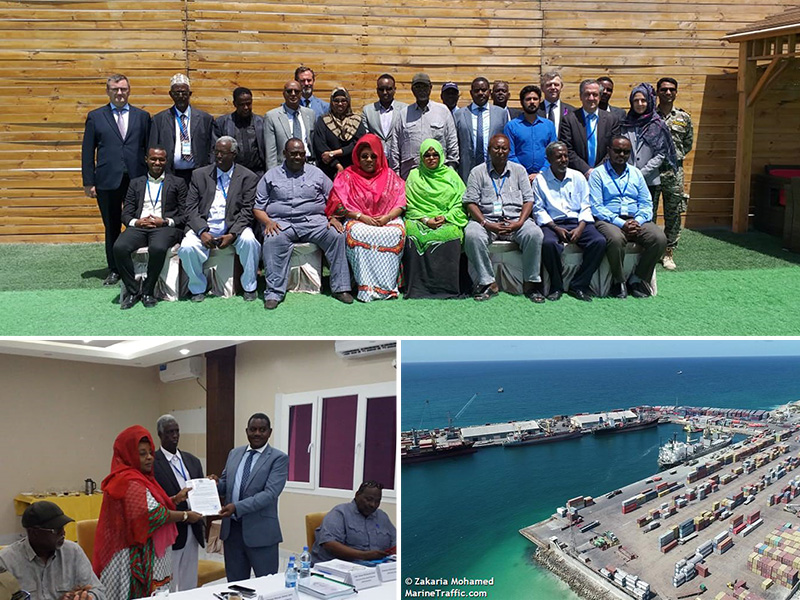Maritime development in Somalia has moved a significant step forward with the completion of the Somali Shipping Code. The Code is the culmination of some six years of work, supported by IMO and the United Nations Assistance Mission in Somalia (UNSOM), to build Somalia's capacity to grow and sustain a burgeoning blue economy and to ensure the necessary legal and administrative processes are in place.
The text of the Shipping Code will now undergo the necessary parliamentary processes for enactment into Somali national law.
The Shipping Code is the blueprint for the country to adop relevant international maritime conventions*, to enable it to discharge its responsibilities as a flag, port and coastal State . At more than 3,300 km, Somalia's coastline is the longest and perhaps the most geographically significant in the Horn of Africa. It has four main commercial seaports and several minor ports.
The development of the Code was instigated in 2014, when Somalia requested IMO to help revise its previous (1959) maritime code. The country was emerging from more than two decades of internal conflict and concerted international efforts to suppress and reduce acts of piracy off its long coastlinr.
The revised Shipping Code reflects the most up-to-date best practices and developments in international maritime law. The process of developing it, has seen aSomali Maritime Administration established. IMO and UNSOM have worked with Somalia to deliver legal and technical training to support core administrative and legal functions, including induction training for maritime administration officials during a workshop in January 2020 at the Djibouti Regional Training Centre, Djibouti.
During a ceremony in Mogadishu (9 March), Her Excellency, Honourable Maryam Aweys Jama, the Minister of Ports and Marine Transport in the Federal Government of Somalia, received a copy of the finalized Code (in the Somali language) from Mr. Dave Muli, IMO's Regional Coordinator for Eastern and Southern Africa.
Mr. Muli thanked the Federal Government of Somalia for its commitment to ensuring safe shipping off the coast of Somalia and pledged IMO's continuing support for the development of Somalia's maritime future.
* Relevant international maritime conventions include the United Nations Convention on the Law of the Sea (UNCLOS); IMO conventions on safety of life at sea (SOLAS), prevention of pollution from ships (MARPOL), seafarer training (STCW); and the International Labour Organization's Maritime Labour Convention (MLC).
